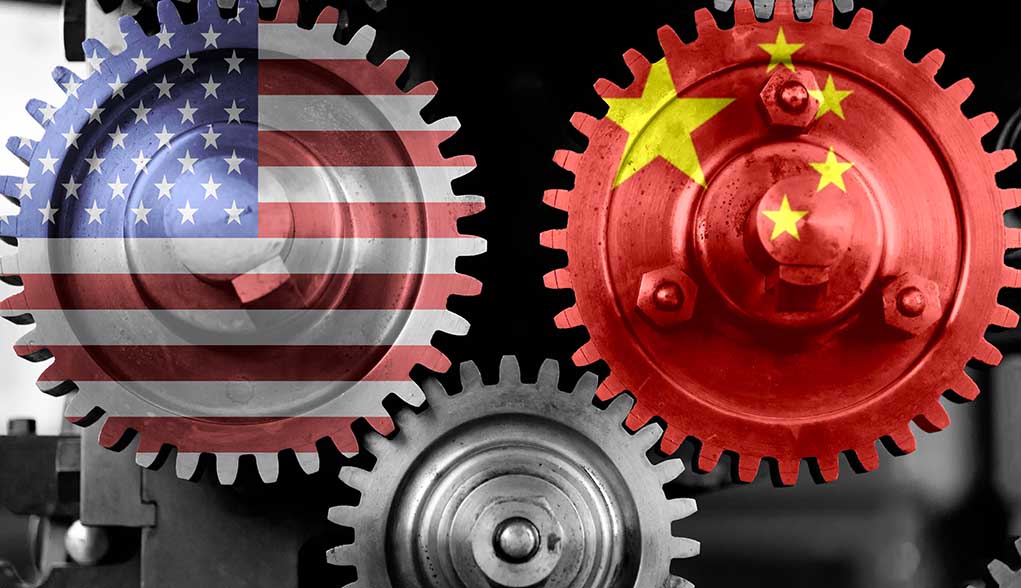
A U.S.-based patent licensing firm is charging American companies double what Chinese competitors pay, directly undermining President Trump’s efforts to address China’s unfair trade practices and intellectual property theft.
Key Takeaways
- Access Advance offers 50% discounts to companies in “Region 2” territories including China, India, and Vietnam, while charging full rates to U.S. firms.
- Chinese tech companies sanctioned by the U.S., including DJI and Zhejiang Dahua, benefit from lower licensing fees for essential video codec technologies.
- This pricing policy contradicts President Trump’s “America First” trade strategy aimed at addressing China’s intellectual property abuses.
- Access Advance’s CEO Peter Moller has confirmed the discount policy, which disadvantages American companies in the global marketplace.
- The practice comes as China is transitioning from a net licensee to a net licensor in the global technology ecosystem, expanding its influence in patent disputes.
American Companies Paying Double for Patent Licenses
In a shocking revelation that directly undermines America’s economic interests, U.S.-based patent licensing firm Access Advance has been offering significant discounts to Chinese technology companies while charging American firms full price. This controversial pricing structure creates an uneven playing field in which U.S. companies are forced to pay twice as much for access to essential video codec technologies that power streaming services, online platforms, and electronic devices. The company disguises this preferential treatment by categorizing China as part of “Region 2,” which includes countries outside the U.S., UK, Europe, and other American allies.
“It is accurate to say that Access Advance provides a 50 percent discount for sales in ‘Region 2 Countries.’ Those include many countries such as China, India, Vietnam, and Thailand,” Peter Moller, the CEO of Access Advance confirmed.
This preferential treatment extends to Chinese companies that have been sanctioned by the U.S. government, including drone manufacturer DJI and surveillance equipment maker Zhejiang Dahua. These companies now enjoy substantially lower costs for licensing critical technologies, giving them a competitive edge in global markets while American companies struggle with higher operating expenses. The patent pools managed by Access Advance cover technologies that are essential for modern digital video services, making these discriminatory pricing policies particularly harmful to U.S. technological competitiveness.
Undermining Trump’s Trade Policies
Access Advance’s discount policy directly contradicts President Trump’s aggressive stance on Chinese trade practices. The President has consistently worked to level the playing field and protect American intellectual property from Chinese exploitation through tariffs and other trade measures. These efforts aim to address long-standing issues with China’s approach to technology transfers and intellectual property rights, which have disadvantaged American companies for decades. By offering substantial discounts to Chinese firms, Access Advance is effectively undermining these crucial policy objectives.
“China’s policies, practices, and actions with regard to the forced transfers of American technology and the theft of American intellectual property” remain a serious concern, as President Trump stated when implementing tariffs against China.
A trade official from the Trump administration expressed alarm about the situation, saying they were “very concerned about American companies giving preferential treatment to China.” This statement highlights the administration’s awareness of how such corporate policies can undermine broader national economic interests. The fact that a U.S.-based company is effectively subsidizing Chinese competitors calls into question its commitment to American prosperity and raises concerns about potential conflicts of interest in its business model.
China’s Growing Patent Power
The problematic pricing structure comes at a time when China is rapidly expanding its influence in global patent disputes. Chinese companies are transitioning from being primarily technology licensees to becoming major licensors, with firms like Huawei and ZTE building substantial portfolios of Standard Essential Patents (SEPs). These patents are crucial for technologies like 5G, 6G, and autonomous vehicles, representing significant economic value in the global marketplace. China’s courts are increasingly asserting jurisdiction over international patent disputes, challenging traditional legal regimes in the United States and Europe.
The 2023 Chongqing court decision in Nokia v. Oppo marked a significant milestone, establishing China’s first global licensing rates for SEPs. China’s Supreme People’s Court has further asserted its authority to set global Fair, Reasonable, and Non-discriminatory (FRAND) rates, including for foreign companies. This growing judicial power, combined with preferential pricing from companies like Access Advance, creates a concerning trend that could further disadvantage American technology firms in global competition. The lack of transparency in China’s judicial system only compounds these concerns, with limited public access to court rulings.
The Impact on American Competitiveness
While Chinese tech companies enjoy discounted patent licensing fees, American tech firms face significant challenges even entering the Chinese market. Major U.S. platforms like Facebook, Twitter, and Google remain banned in China, creating an asymmetric competitive environment where Chinese companies have full access to American markets while U.S. firms face restricted access to Chinese consumers. This one-sided arrangement has long been a source of tension in U.S.-China trade relations, and Access Advance’s pricing policies only exacerbate the imbalance by giving Chinese companies additional financial advantages.
“The winds of change are blowing through the top Chinese tech companies in 2025,” noted Ranking Digital Rights (RDR) in a recent report. Despite this supposed improvement in transparency, the fundamental imbalance in market access and now licensing costs continues to disadvantage American companies.
As President Trump continues to implement policies aimed at fair trade and protecting American intellectual property, the actions of Access Advance serve as a stark reminder that corporate policies can sometimes work against national economic interests. The preferential treatment given to Chinese firms not only disadvantages American companies in global competition but also undermines broader efforts to address China’s problematic approach to intellectual property rights and technology transfers. This situation demands attention from policymakers concerned with maintaining American technological leadership and ensuring fair competition in global markets.











